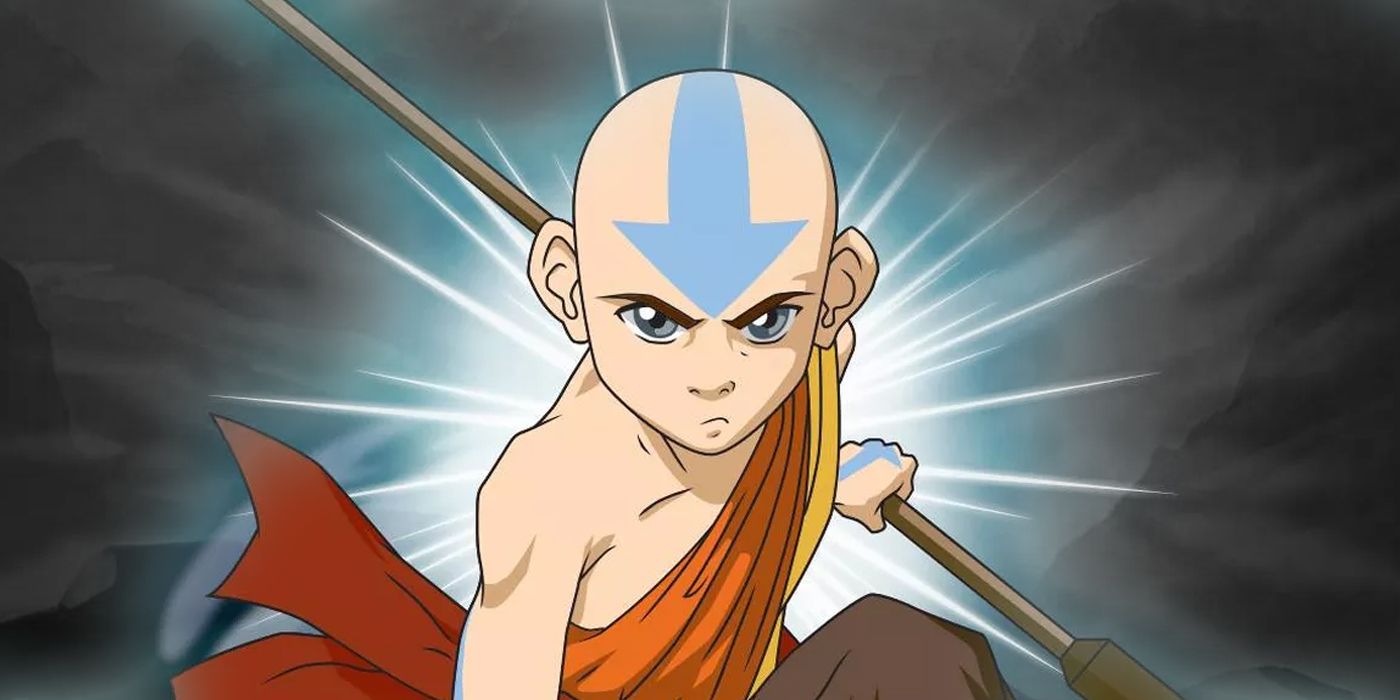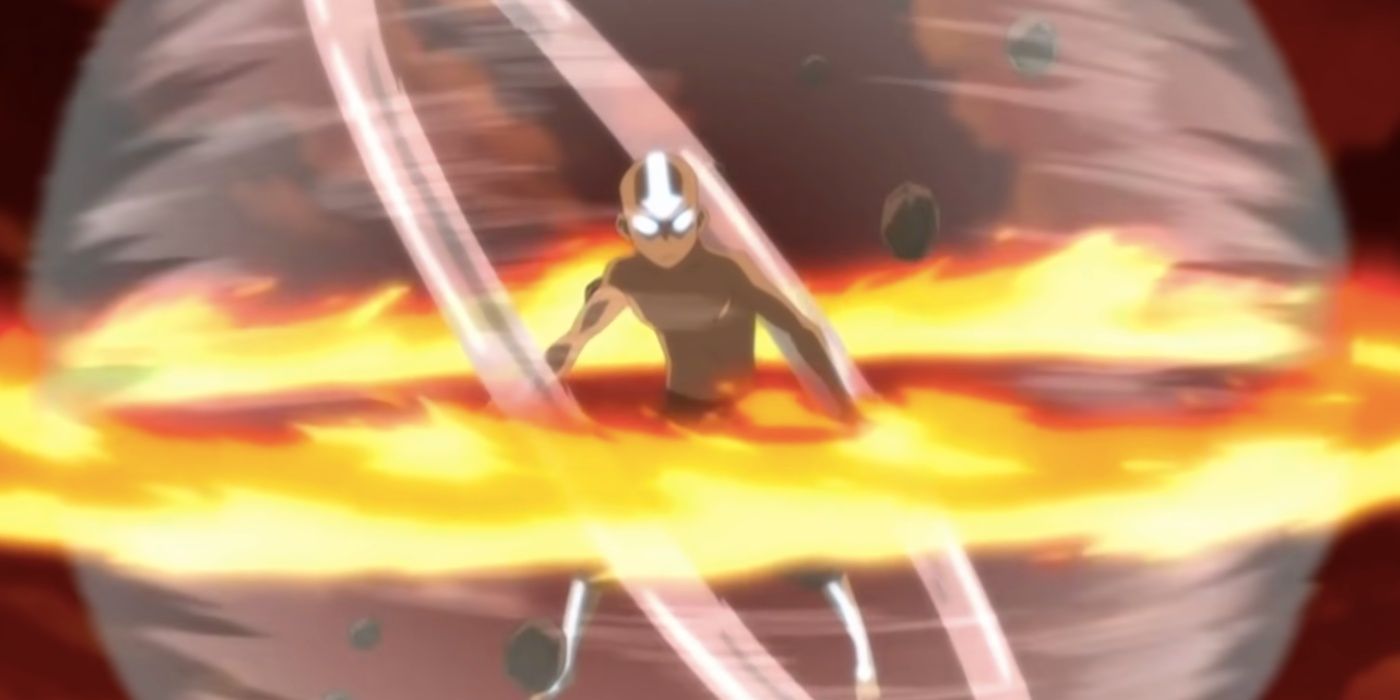Warning: Spoilers for The Shadow of Kyoshi
Aang's pacifism in Avatar: The Last Airbender was his greatest character trait and an attribute that many of his fellow Avatars lacked. The Avatar is the continually reincarnated protector of the world, while also being the only individual in the Four Nations capable of "bending" all four elements of Water, Earth, Fire, and Air. As the various iterations of the Avatar franchise demonstrate, this is certainly no easy duty to be tasked with.
The reason behind this is that, despite being bonded with the Spirit of Light, Raava, every Avatar is still fundamentally human, and subject to the flaws and personal desires that everyone is. One human trait known to manifest itself in Avatars is anger, often coming about through either training or being placed in situations requiring difficult choices to be made. Aang's Avatar successor Korra displayed this in The Legend of Korra in such instances as her frustration in her Airbending training. One of Aang's predecessors, Kyoshi, was also subject to losing her temper, such as when she comes close to dropping a man to his death while trying to get answers, as revealed in the spin-off book The Shadow of Kyoshi.
Though Avatar showed that Aang was perfectly capable of being overtaken by his emotions, he also displayed a degree of self-control well beyond his years. In particular, Aang's upbringing as a Southern Air Temple monk, contrasted against the possibility of having to kill Fire Lord Ozai in the Avatar series finale, left him in a deep personal crisis. Despite being pushed to do so by his past lives while in the Avatar State, Aang was able to hold himself back and simply strip Ozai of his Firebending ability.
Anger certainly isn't the only human emotion that Avatars still feel, with Kuruk being the most arrogant of the known Avatars. This very flaw would end tragically for him, with Kuruk losing his fiance Ummi to Koh the Face-Stealer. As with anger, Aang was able to keep his ego from inflating in a way that Kuruk failed to, despite the immense power inherent in being the Avatar.
It should be noted that Aang isn't the only Avatar who was able to keep his emotions in check. Like Aang, Yangchen was an Air Nomad, and defaulted to her people's pacifism in order to form a truce with the spirit of General Old Iron to save a city from being destroyed. The Fire Nation-born Avatar Szeto also favored the path of least resistance, successfully saving the Fire Nation from tearing itself apart through internal conflicts by taking a position with the royal court to focus his Avatar efforts, as seen in The Shadow of Kyoshi.
Still, for as diplomatic as Yangchen and Szeto were, it isn't impossible that either could have been pushed to their limits when faced with one nation launching a conquest of the entire world, with their entire respective people having already been wiped out while they had been frozen for a century, all of which Aang had to deal with, and at the age of 12, no less. Every Avatar is human and none have ever been flawless, including Aang, but the tests he faced at such a young age showed he knew how to keep his cool even against the Fire Lord himself. As the young hero of Avatar: The Last Airbender, Aang's temperance was as great as any Avatar's has ever been.


